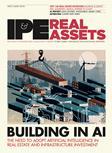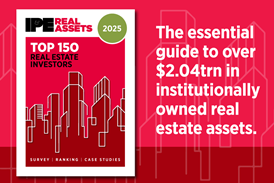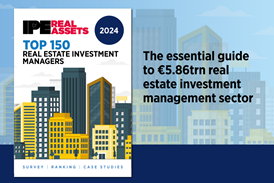The UK’s vote to leave the European Union could “destabilise” funding arrangements for major infrastructure projects, according to a panel at an International Project Finance Association event hosted by PwC.
The possible loss of EU regional aid and a depreciated currency were also highlighted as key causes of investor concern at the event, attended by S&P Global Ratings, Meridiam, Clifford Chance and Deutsche Bank.
Richard Abadie, partner and global leader of capital projects and infrastructure at PwC, said: “Not only does Brexit itself pose uncertainty to UK infrastructure projects requiring long-term investment from Europe, but we still haven’t signed Article 50 of the EU Treaty.
“This means there is little clarity regarding future trading and investment relationships, as well as how movement of labour will be affected – all of which could dissuade investors from considering UK infrastructure for now.”
Michael Wilkins, managing director of infrastructure ratings at S&P Global Ratings, said: “Investors want to see clarity and reliability, and their unease will be further compounded by the current political instability.
“A weaker pound may also choke project finance in the UK, as imports of specialist materials and equipment required for projects become more expensive. Wind turbines from Europe is one clear example.”
Currency volatility was a key concern highlighted in a pre-Brexit survey of 51 institutional investors conducted by S&P Global.
Most respondents (71%) expressed a belief that would depress investment to UK infrastructure over the next two years, with nearly half believing the effects would last longer still.
The panellists were unanimous in their view that Brexit was likely to have an adverse effect on EU funding streams – in particular, those from the European Investment Bank (EIB).
“As well as committing funds to UK projects, the EIB’s involvement helps to ‘crowd-in’ investment,” Wilkins said.
S&P Global estimates UK GDP could fall by about 1.2% next year as a result of , meaning projects linked to national economic growth, such as airports, could be affected.
Stephen Paine, global head of infrastructure and utilities at Deutsche Bank, said: “There may, however, be some positives. Some British investors, for instance, may seize the opportunity to increase their own infrastructure allocations if funds from the EIB are scaled back.”
Julia Prescot, chief strategy officer at Meridiam, said that, in a “post-Brexit environment, the key will be matching central government funding with local community needs regarding the prioritisation of infrastructure development”.
She added: “By strengthening communication channels between voters and key decision-makers, the hope is that more public sector funding, along with added institutional investment, is allocated to smaller/medium-sized projects that benefit local communities.”
Clare Burgess, head of finance and capital markets at Clifford Chance, said that, while uncertainty remained, investors “cannot put off their decisions indefinitely”.
“As negotiations will most likely take years to conclude, many investors are realising they must act, meaning we may not experience the ongoing stagnation some expect,” she said.
“While there are many questions to be answered, until we have clarity regarding Brexit negotiations talks, for many, its business as usual.”









